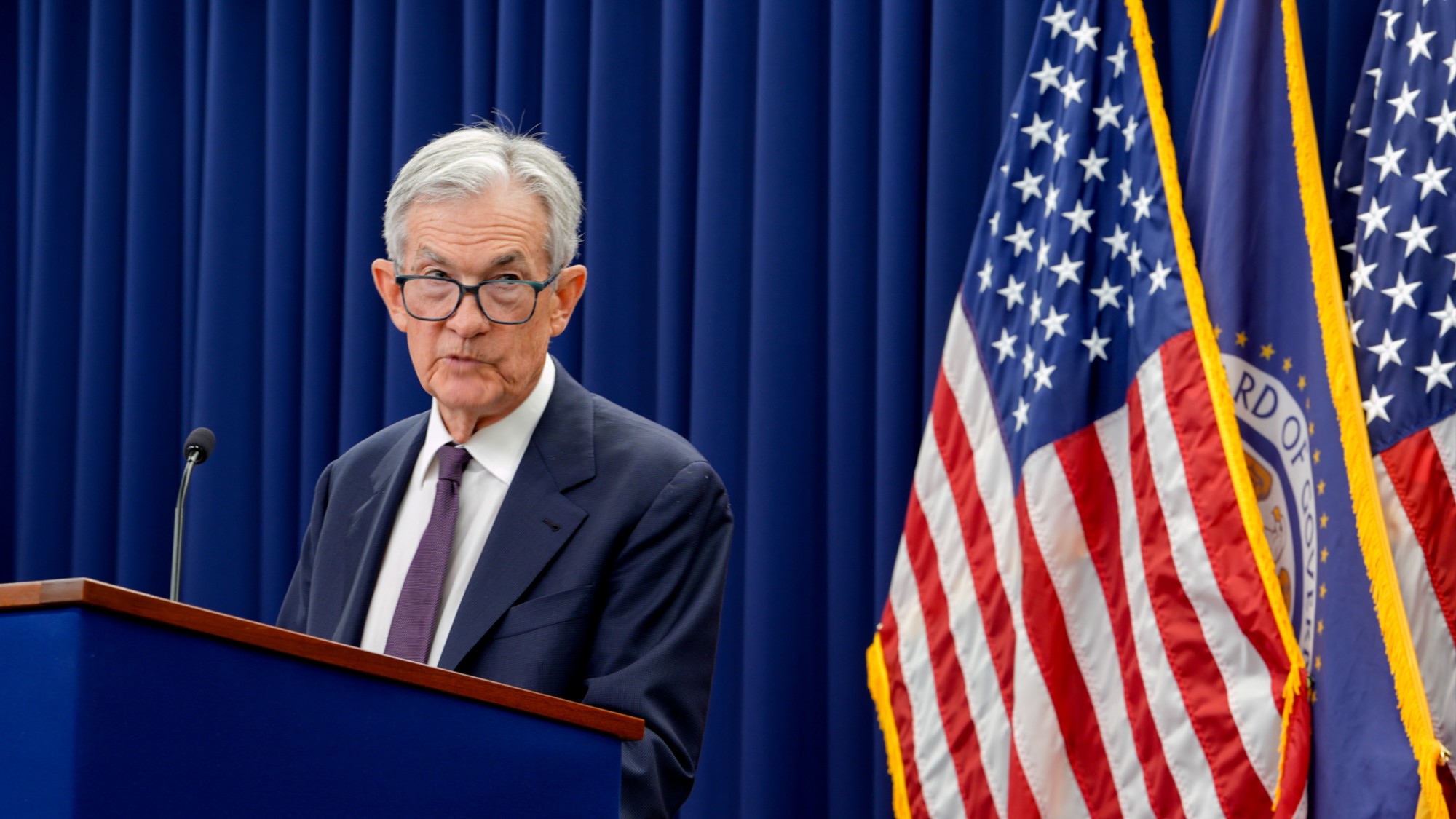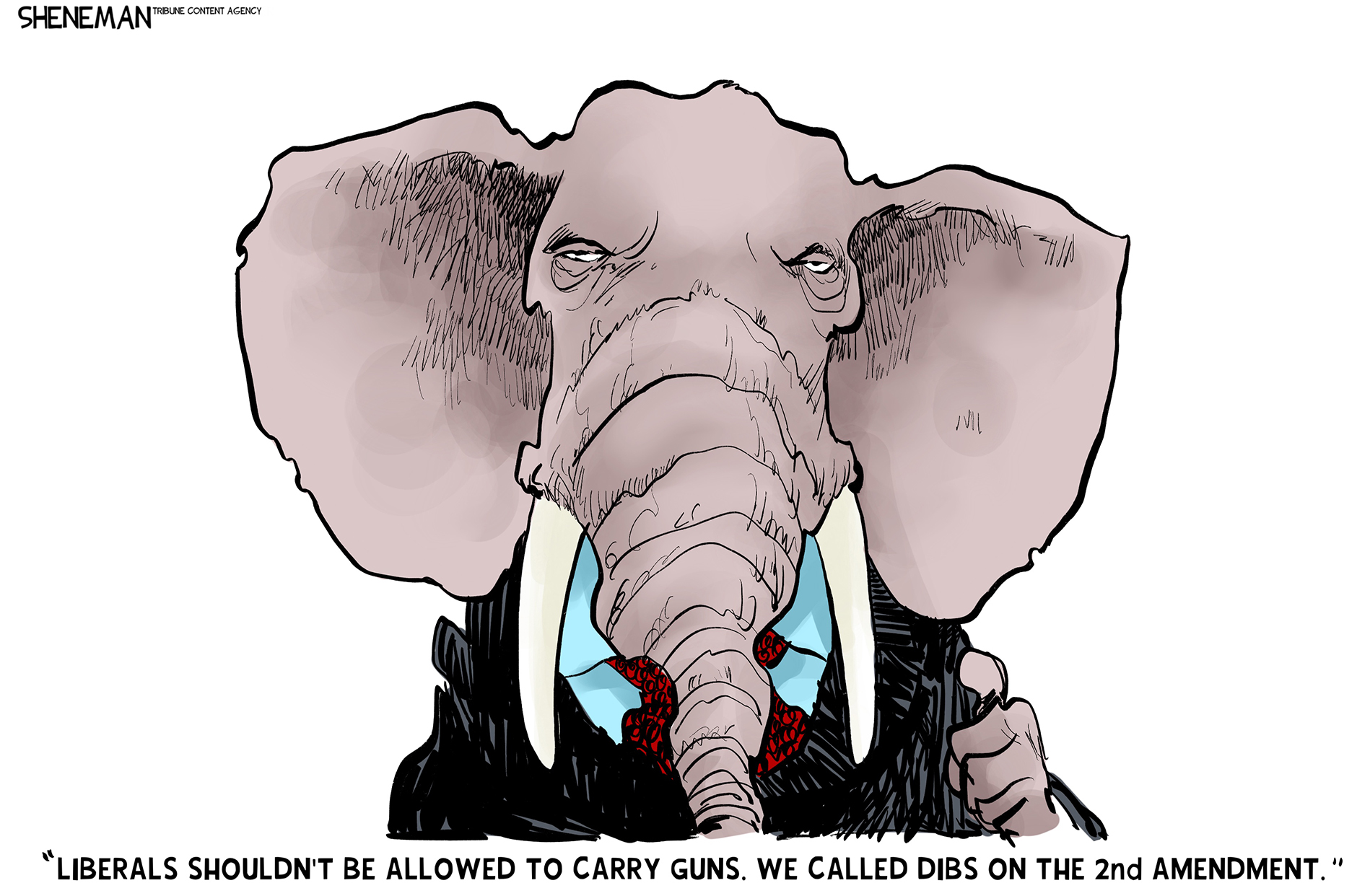Wednesday's season finale of American Political Gladiators
CNN will host the 20th game-show-like debate of the GOP campaign season tonight. And with any luck, it'll be the last


My, how the time has flown. On Wednesday night, the Republican candidates for president will meet for the 20th time in this cycle, a stretch that started on May 5, 2011, in Greenville, S.C. It may surprise people to recall that only two of the current four candidates participated in that event: Rick Santorum and Ron Paul. Of the other three participants, Tim Pawlenty and Herman Cain exited the race long before the first votes were cast in the Iowa caucuses, and Gary Johnson never seriously contended. Mitt Romney and Newt Gingrich joined the debate club in June at the second official debate, and a cast of also-rans came and went between debate No. 1 and debate No. 20.
Even the numbering sequence is open to, er, debate. No one would count the Lincoln-Douglas-style debate between Gingrich and Cain, although it may have been one of the most informative of the series. Should we count Mike Huckabee's well-regarded forums, in which he questioned each candidate individually? If so, Wednesday's is the 22nd debate, not the 20th. And Sen. Jim DeMint's "Palmetto Freedom Forum" missed Santorum, Rick Perry, and Jon Huntsman, but did include three of the four contenders on Survivor: Republican Island. Nevertheless, in official debate history, it remains a nonsanctioned event.
The only game changers in tonight's debate will come on perceived gaffes and facial expressions rather than actual policy differences and defense of value systems.
The Week
Escape your echo chamber. Get the facts behind the news, plus analysis from multiple perspectives.

Sign up for The Week's Free Newsletters
From our morning news briefing to a weekly Good News Newsletter, get the best of The Week delivered directly to your inbox.
From our morning news briefing to a weekly Good News Newsletter, get the best of The Week delivered directly to your inbox.
The 20 debates may seem unprecedented, but this cycle actually lags behind 2008. From the May 3, 2007, debate at the Reagan Library in Simi Valley to the final Groundhog Day debate (which also included Democrats Barack Obama and Hillary Clinton) in New York in 2008, Republicans held 21 presidential nomination debates. That paled in comparison with the number of debates held by Democrats in the same cycle, 26 in all. The final five debates featured only Obama and Clinton, excluding the joint GOP-Democratic debate in New York.
This cycle, after all of this debate, voters must have gotten to know these four GOP candidates rather intimately... right? Is that not why the political parties and the media stage these events? We know that the debates drive candidate support. Two candidates can relate their surges in the polls directly to debate moments. Herman Cain caught his updraft in late September when he gave a powerful testimony on his personal opposition to "ObamaCare," the issue that fired up the Tea Party. Gingrich soared after scolding CBS moderator Scott Pelley on the rules of war in November, and then again in South Carolina when he turned the tables on CNN's John King and lambasted him for asking about a story involving Newt's (second) ex-wife. One candidate dissipated his support in the debates, too; Rick Perry had been expected to swamp the field on his record of creating jobs in Texas and ended up in fifth place in Iowa and out of the race by South Carolina, thanks to a series of debate gaffes and stumbles.
But did we really learn anything about these candidates outside of their ability to debate? What did we learn, other than who could attack the media and who had trouble answering questions in a game-show format? Every memorable moment from the debates came from process questions and gotcha politics, with the exception of Cain's answer on "ObamaCare." The media reporting on the debates focused on everything except policy, in large part because the format doesn't allow for substantial discussion on complicated policy areas. The four survivors of the debate process succeeded not because of the debates, but either in spite of or regardless of them.
Thankfully, the string of debates appears to have come to a close. Late last week, Romney and Paul pulled out of a scheduled pre-Super Tuesday CNN debate in Georgia, and Santorum quickly followed suit. Gingrich complained bitterly about the cancellation, saying his competitors were "afraid to debate Newt Gingrich." Perhaps the better word is "tired." MSNBC has also canceled the March 5 debate that was to have taken place at the Reagan Library in Simi Valley, where the series began. The only other debate still left on the schedule is in Portland, Ore., on March 19. But none of the candidates have committed to that event, and at this point, it seems very doubtful that anyone will.
A free daily email with the biggest news stories of the day – and the best features from TheWeek.com
That means Wednesday's debate is perhaps the last time we will see the candidates on stage together in this primary cycle. Can we expect that this event will be any more meaningful than the 19 game shows that preceded it? Probably not, but it could be important for Gingrich and Santorum. John King gets the nod again as moderator for CNN, a curious decision after King's performance in the debates overall and especially since this might be the final opportunity to have Wolf Blitzer run the show. If Gingrich can rekindle the embers of his campaign with another attack on the media — especially one that produces a fumbling response, like King's in South Carolina, rather than the far more effective riposte Blitzer gave Gingrich in Florida — he could perhaps generate a third surge among conservatives.
For Santorum, his momentum makes him the biggest target in the debate. CNN will no doubt open a host of social-conservative issues and force Santorum to talk about contraception and Satan all night long. If he falls into that trap, his momentum will dissipate quickly. If he can turn the tables on King and force the conversation back to religious and economic liberty, Santorum will ease fears that he is too distracting to beat Obama on the economy.
In the end, though, this debate will probably produce nothing more than a final round of gotcha moments and a lot of talk about negative ads from other candidates in the field. The only game changers will come on perceived gaffes and facial expressions rather than actual policy differences and defense of value systems. After 20 of these debates, that will sound like an appropriate finale to American Political Gladiators, which has all of the political substance of the original, with none of the costumes or suspense.
Edward Morrissey has been writing about politics since 2003 in his blog, Captain's Quarters, and now writes for HotAir.com. His columns have appeared in the Washington Post, the New York Post, The New York Sun, the Washington Times, and other newspapers. Morrissey has a daily Internet talk show on politics and culture at Hot Air. Since 2004, Morrissey has had a weekend talk radio show in the Minneapolis/St. Paul area and often fills in as a guest on Salem Radio Network's nationally-syndicated shows. He lives in the Twin Cities area of Minnesota with his wife, son and daughter-in-law, and his two granddaughters. Morrissey's new book, GOING RED, will be published by Crown Forum on April 5, 2016.
-
 Fed holds rates steady, bucking Trump pressure
Fed holds rates steady, bucking Trump pressureSpeed Read The Federal Reserve voted to keep its benchmark interest rate unchanged
-
 Judge slams ICE violations amid growing backlash
Judge slams ICE violations amid growing backlashSpeed Read ‘ICE is not a law unto itself,’ said a federal judge after the agency violated at least 96 court orders
-
 Political cartoons for January 29
Political cartoons for January 29Cartoons Thursday's political cartoons include 2nd amendment dibs, disturbing news, and AI-inflated bills
-
 The billionaires’ wealth tax: a catastrophe for California?
The billionaires’ wealth tax: a catastrophe for California?Talking Point Peter Thiel and Larry Page preparing to change state residency
-
 Bari Weiss’ ‘60 Minutes’ scandal is about more than one report
Bari Weiss’ ‘60 Minutes’ scandal is about more than one reportIN THE SPOTLIGHT By blocking an approved segment on a controversial prison holding US deportees in El Salvador, the editor-in-chief of CBS News has become the main story
-
 Has Zohran Mamdani shown the Democrats how to win again?
Has Zohran Mamdani shown the Democrats how to win again?Today’s Big Question New York City mayoral election touted as victory for left-wing populists but moderate centrist wins elsewhere present more complex path for Democratic Party
-
 Millions turn out for anti-Trump ‘No Kings’ rallies
Millions turn out for anti-Trump ‘No Kings’ ralliesSpeed Read An estimated 7 million people participated, 2 million more than at the first ‘No Kings’ protest in June
-
 Ghislaine Maxwell: angling for a Trump pardon
Ghislaine Maxwell: angling for a Trump pardonTalking Point Convicted sex trafficker's testimony could shed new light on president's links to Jeffrey Epstein
-
 The last words and final moments of 40 presidents
The last words and final moments of 40 presidentsThe Explainer Some are eloquent quotes worthy of the holders of the highest office in the nation, and others... aren't
-
 The JFK files: the truth at last?
The JFK files: the truth at last?In The Spotlight More than 64,000 previously classified documents relating the 1963 assassination of John F. Kennedy have been released by the Trump administration
-
 'Seriously, not literally': how should the world take Donald Trump?
'Seriously, not literally': how should the world take Donald Trump?Today's big question White House rhetoric and reality look likely to become increasingly blurred
